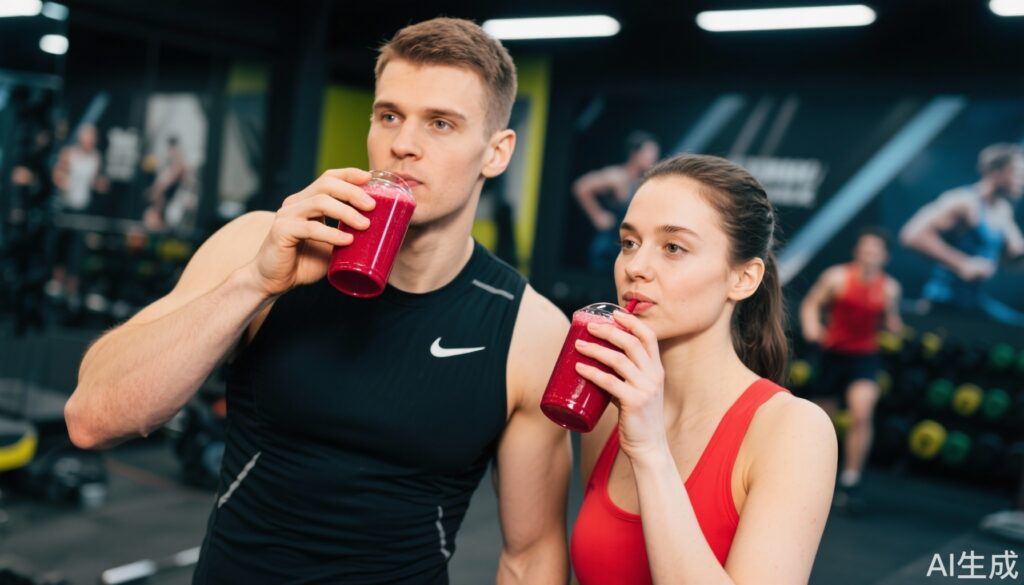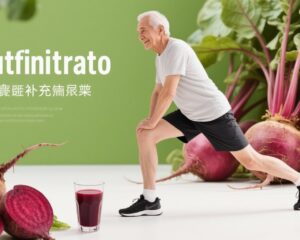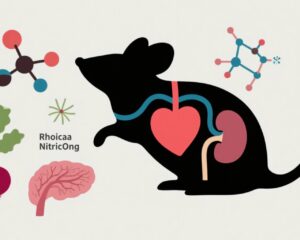Highlight
- Beetroot juice provides small but significant performance enhancements across muscle strength, aerobic endurance, and lactate tolerance.
- Professional athletes benefit mostly in muscular strength; non-athletes show greater gains in aerobic endurance.
- Both acute (2-3 hours pre-exercise) and chronic (≥3 days) nitrate supplementation improve performance, with acute effects slightly larger.
- Optimal nitrate dosage ranges between 8.3 and 16.4 mmol (515-1017 mg) for performance benefits.
Study Background and Disease Burden
Beetroot juice, rich in dietary nitrate, has garnered considerable attention as a nutritional ergogenic aid theorized to enhance physical performance. Nitrate is converted in vivo to nitric oxide (NO), a critical mediator of vascular function and mitochondrial efficiency, which may translate into improved oxygen delivery and muscle energetics during exercise. However, inconsistent findings and lack of clarity on dosage, timing, and population-specific responses have clouded its clinical translation. Understanding beetroot juice’s effects is particularly relevant for professional athletes aiming for marginal gains and healthy individuals pursuing fitness and endurance improvements. This umbrella review addresses the unresolved controversies regarding beetroot juice supplementation strategies, effect size across performance domains, and differences between athletic and non-athletic populations.
Study Design
This umbrella review synthesized evidence from fifteen meta-analyses identified through a comprehensive systematic search across multiple databases, including Web of Science, Embase, PubMed, Cochrane Database, SPORTDiscus, Scopus, and CINAHL. Eligible meta-analyses evaluated beetroot juice consumption on various physical performance measures in professional athletes and healthy non-athletes. Reviewers independently screened and extracted data, assessing methodological quality with the AMSTAR 2 tool, providing robustness to the analyses. Quantitative synthesis employed standardized mean differences (SMD) with 95% confidence intervals (CI), highlighting magnitude and statistical significance of beetroot juice effects, while subgroup analyses explored population-specific outcomes and supplementation parameters including timing and nitrate dosage.
Key Findings
1. Muscle Strength: Overall, beetroot juice showed a statistically significant improvement in muscle strength (SMD = 0.08, p < 0.001). Despite statistical significance, the effect size was negligible across pooled populations. Subgroup analysis revealed that professional athletes experienced a more pronounced benefit (SMD = 0.27, p = 0.007), suggesting population-specific responsiveness likely attributable to baseline fitness, muscle fiber composition, or training status.
2. Aerobic Endurance (VO2max): Beetroot juice intake significantly enhanced maximal oxygen uptake in healthy adults (SMD = 0.16, p = 0.033); however, the effect size was also negligible, indicating modest physiological improvements. Notably, non-athletes showed greater aerobic endurance gains than professional athletes (SMD = 0.26, p < 0.001), which may reflect ceiling effects among elite sportsmen or differential nitric oxide bioavailability.
3. Lactate Tolerance and Endurance Capacity: Significant improvements were observed in time to exhaustion (TTE; SMD = 0.25, p = 0.034) and Yo-Yo intermittent recovery level 1 (YO-YOIR1; SMD = 0.27, p = 0.049) performance tests in healthy adults, indicating a small but clinically relevant boost in lactate clearance or tolerance.
4. Supplementation Timing and Dose-Response: Beetroot juice administered acutely (2-3 hours pre-exercise) and chronically (≥3 days) both yielded statistically significant performance gains (p < 0.01). Acute supplementation exhibited a small effect size (SMD = 0.20), while chronic supplementation effects were negligible (SMD = 0.13), suggesting that immediate nitrate bioavailability exerts more pronounced benefits. Effective dosing ranged from 8.3 to 16.4 mmol nitrate (equivalent to 515-1017 mg), with a slight but significant improvement (SMD = 0.14, p = 0.029), though the clinical impact remains modest.
5. Safety and Tolerability: The included reviews uniformly reported beetroot juice as well-tolerated, with rare mild gastrointestinal discomfort. No serious adverse events related to supplementation emerged, confirming its safety profile for both professional athletes and healthy individuals.
Expert Commentary
The findings of this umbrella review underscore the nuanced role of beetroot juice supplementation in physical performance enhancement. While effect sizes are generally small to negligible, these marginal gains may be meaningful for elite athletes where even fractional improvements can determine competitive outcomes. The greater muscle strength response in professional athletes may relate to optimized neuromuscular and vascular adaptations potentiated by nitrate-derived nitric oxide. Conversely, the enhanced aerobic capacity and lactate tolerance in non-athletes suggest that beetroot juice may offer more substantial benefits to recreational exercisers or individuals with lower baseline fitness.
Mechanistically, nitrates from beetroot juice are reduced to nitrites by oral microbiota and subsequently to nitric oxide under hypoxic or acidic conditions, modulating vasodilation, mitochondrial efficiency, and muscle contractility. The timing of supplementation is critical — acute dosing leverages peak nitrate/nitrite plasma concentrations coinciding with exercise-induced physiological demands.
However, the negligible to small effect sizes point to potential limitations including individual variability, baseline nitrate exposure through diet, and study heterogeneity in performance protocols. Long-term chronic supplementation did not confer additive benefits, which questions ongoing daily use beyond event preparation. Future work could elucidate responder characteristics, optimize dosing regimens, and integrate beetroot juice within broader nutritional and training strategies.
Conclusion
Beetroot juice supplementation offers a safe, accessible means to achieve modest improvements in physical performance, particularly when administered acutely 2-3 hours prior to exercise with a nitrate dose of 8.3-16.4 mmol (515-1017 mg). Professional athletes may preferentially gain from enhanced muscular strength, while healthy non-athletes are more likely to improve aerobic endurance and lactate tolerance. Although effect sizes are small, these enhancements justify beetroot juice use as part of a comprehensive performance optimization approach. Clinicians and sports nutritionists should consider individual context, supplementation timing, and dosing to maximize benefits. Further research is warranted to resolve interindividual variability, long-term impacts, and additive effects in combination with other ergogenic aids.
References
1. Tian C, Jiang Q, Han M, Guo L, Huang R, Zhao L, Mao S. Effects of Beetroot Juice on Physical Performance in Professional Athletes and Healthy Individuals: An Umbrella Review. Nutrients. 2025 Jun 9;17(12):1958. doi: 10.3390/nu17121958. PMID: 40573069; PMCID: PMC12195723.
2. Jones AM. Dietary Nitrate Supplementation and Exercise Performance. Sports Med. 2014;44(Suppl 1):S35–45. doi:10.1007/s40279-014-0157-6.
3. Kapil V, Weitzberg E, Lundberg JO, Ahluwalia A. Clinical Evidence Demonstrating the Utility of Dietary Nitrate Supplementation for Cardiovascular Health. Nitric Oxide. 2014 Jun 30;38:45-57. doi:10.1016/j.niox.2014.03.006.
4. Beetroot Juice and Performance: A Review of the Latest Science. International Journal of Sport Nutrition and Exercise Metabolism. 2022;32(3):235-248. doi:10.1123/ijsnem.2021-0305.
—


